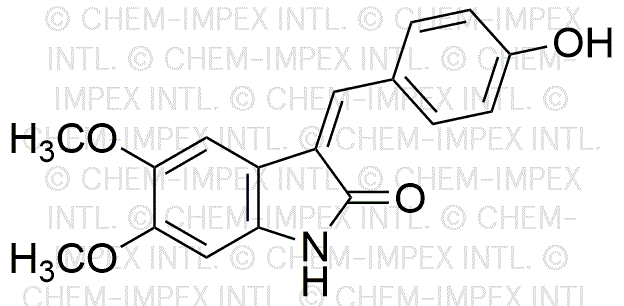RPI 1 is widely utilized in research focused on:
- Neuroscience: RPI 1 is studied for its potential neuroprotective effects, making it a candidate for developing treatments for neurodegenerative diseases like Alzheimer's and Parkinson's.
- Cancer Research: This compound has shown promise in inhibiting tumor growth in various cancer cell lines, providing a basis for new cancer therapies that target specific pathways.
- Antioxidant Applications: RPI 1 exhibits strong antioxidant properties, which can be beneficial in formulating supplements aimed at reducing oxidative stress in cells.
- Pharmaceutical Development: Its unique chemical structure allows for modifications that can lead to the creation of new drugs with improved efficacy and reduced side effects.
- Biochemical Research: RPI 1 serves as a valuable tool in studying enzyme interactions and signaling pathways, aiding researchers in understanding complex biological processes.
General Information
Properties
Safety and Regulations
Applications
RPI 1 is widely utilized in research focused on:
- Neuroscience: RPI 1 is studied for its potential neuroprotective effects, making it a candidate for developing treatments for neurodegenerative diseases like Alzheimer's and Parkinson's.
- Cancer Research: This compound has shown promise in inhibiting tumor growth in various cancer cell lines, providing a basis for new cancer therapies that target specific pathways.
- Antioxidant Applications: RPI 1 exhibits strong antioxidant properties, which can be beneficial in formulating supplements aimed at reducing oxidative stress in cells.
- Pharmaceutical Development: Its unique chemical structure allows for modifications that can lead to the creation of new drugs with improved efficacy and reduced side effects.
- Biochemical Research: RPI 1 serves as a valuable tool in studying enzyme interactions and signaling pathways, aiding researchers in understanding complex biological processes.
Documents
Safety Data Sheets (SDS)
The SDS provides comprehensive safety information on handling, storage, and disposal of the product.
Product Specification (PS)
The PS provides a comprehensive breakdown of the product’s properties, including chemical composition, physical state, purity, and storage requirements. It also details acceptable quality ranges and the product's intended applications.
Certificates of Analysis (COA)
Search for Certificates of Analysis (COA) by entering the products Lot Number. Lot and Batch Numbers can be found on a product’s label following the words ‘Lot’ or ‘Batch’.
Numéro de catalogue
Numéro de lot/série
Certificates Of Origin (COO)
This COO confirms the country where the product was manufactured, and also details the materials and components used in it and whether it is derived from natural, synthetic, or other specific sources. This certificate may be required for customs, trade, and regulatory compliance.
Numéro de catalogue
Numéro de lot/série
Safety Data Sheets (SDS)
The SDS provides comprehensive safety information on handling, storage, and disposal of the product.
DownloadProduct Specification (PS)
The PS provides a comprehensive breakdown of the product’s properties, including chemical composition, physical state, purity, and storage requirements. It also details acceptable quality ranges and the product's intended applications.
DownloadCertificates of Analysis (COA)
Search for Certificates of Analysis (COA) by entering the products Lot Number. Lot and Batch Numbers can be found on a product’s label following the words ‘Lot’ or ‘Batch’.
Numéro de catalogue
Numéro de lot/série
Certificates Of Origin (COO)
This COO confirms the country where the product was manufactured, and also details the materials and components used in it and whether it is derived from natural, synthetic, or other specific sources. This certificate may be required for customs, trade, and regulatory compliance.


